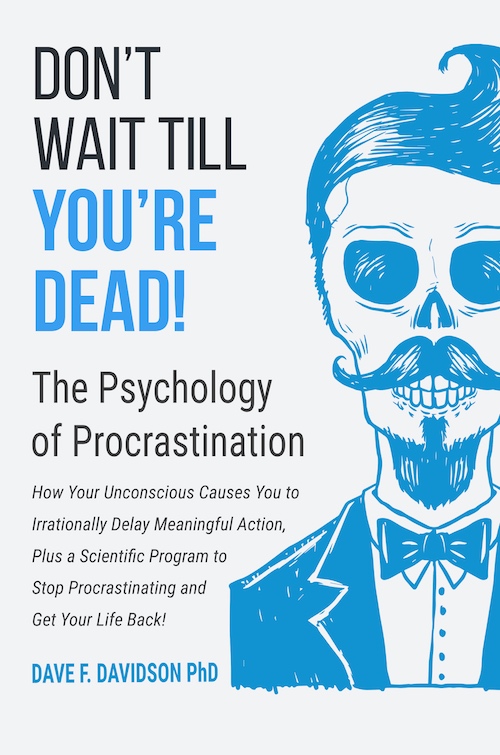
Procrastination is a problem for about 85% of college students, according to research done at Toronto University. Chronic procrastination is debilitating—interfering with normal functioning with respect to the many tasks of modern life—and it afflicts about 20% of us. But you don’t have to have a chronic case of procrastination to want to put a stop to it.
We all want to be productive. Perhaps you are already productive, but want to be even more productive. But there are yet more reasons to overcome your procrastination. Procrastination causes damage to our mental and physical health, leading to depression, stress, and decreased well-being generally. It can cost you money and hurt your reputation at work. Finally, procrastination can lead to a downward spiral of self-perpetuating failures of self-control, conditioning us to learned helplessness.
The causes of procrastination are becoming better and better understood by the psychologists who study it, but what’s been learned may be news to you. According to the latest psychological theory—the “dual-process” theory of human psychology—the self is like an elephant with a monkey on its back. The elephant goes where it wants and the monkey says, “I meant to do that.” Little did you know, your elephant wants to procrastinate.
Like an addict who wants to quit—but can’t—you feel out of control when you procrastinate. You say to yourself that you are going to do X, but then you do the opposite of X. It doesn’t feel good to be so much at odds with oneself.
The science reported on in this book strongly suggests that strategies which foster automaticity—via habit and ritual rather than utilizing willpower—will be the most effective at preventing procrastination and increasing productivity. Tricking the elephant to going where we want will work better than the monkey fruitlessly pulling on the reigns.
In order to overcome procrastination, you’ll need to realize that conscious will is your weakest faculty. Instead, you should foster automaticity by setting up habits that get you started on work with less conscious effort required.
Finally, in this book, I get straight to the point. I have not fluffed up the page count with made-up anecdotes or personal history. I simply lay out the research on what causes procrastination and what it’s costing us. And I spill the beans on scientifically backed strategies to counteract those causes.